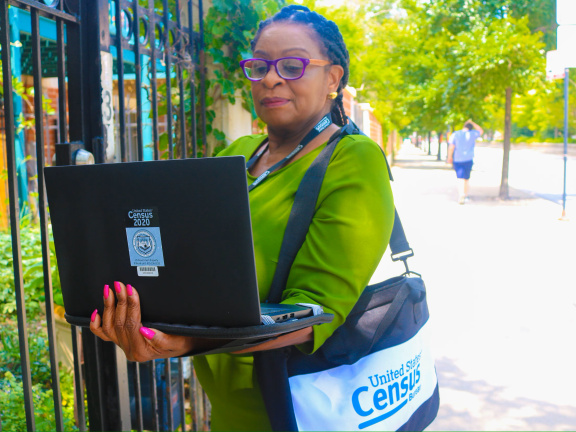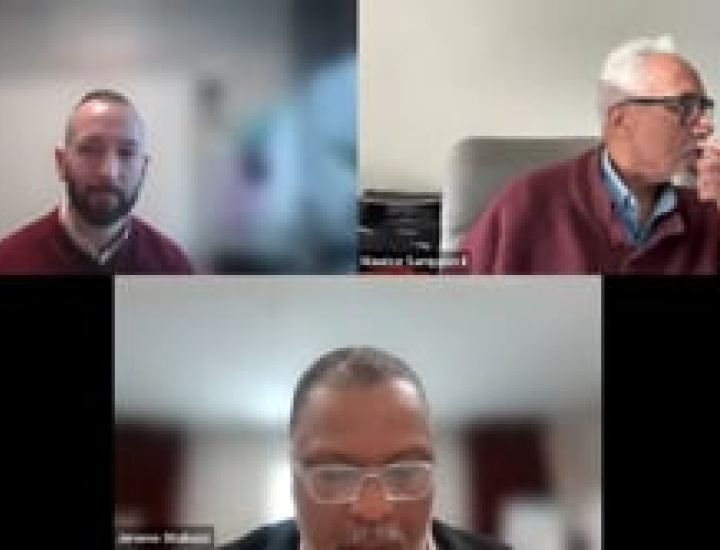
The Constitution requires a census, every ten years, to count all persons in the United States. This population count serves as the basis for sharing political power among the states, with the number of Congressional representatives assigned (or “apportioned”) to each state based on the updated count. In the years since the Constitution was adopted, Census counts have guided electoral redistricting and distribution of federal funding. More in-depth population statistics and community demographics compiled through the Census Bureau’s annual American Community Survey help communities plan for infrastructure, housing development, and public services.
New research from the Project on Government Oversight shows that more than $2.24 trillion dollars of federal funds were divided among the states based on census data in FY2023. In Pennsylvania, 371 federal programs use census data to distribute over $94 billion in federal spending in the state, the vast majority of it through Medicaid, Medicare, and other health-related spending. Additional census-guided federal funding supports the state’s infrastructure, education, economic, development, and housing. With federal funding and political representation on the line, a complete and accurate census count will position Pennsylvanians to secure their fair share of resources and representation for the next decade.
However, we face tremendous challenges to achieve a full count in the 2030 Census. As we did in 2020, we once again face a gauntlet of issues that include the normal logistical hurdles of a nationwide data operation, budget and staffing concerns at the Census Bureau, and widespread community concerns about data security and trust in government.
Recently, the William Penn Foundation’s Democracy and Civic Initiatives team gathered with philanthropic peers from across the state to begin planning a coordinated funder strategy to support efforts to achieve a complete and accurate count in the 2030 Census. Convened by William Penn Foundation and the Heinz Endowments with support from the national Census Funders Collaborative, 22 funders representing 16 institutions met in Harrisburg, hosted by M&T Bank, for a full day of learning and strategizing.
In addition to sharing our lessons learned from funding census education and get-out-the-count activities in the past, the group reviewed a newly released case study on work led by Pennsylvania Voice (PA Voice) focused on census and redistricting. Building Civic Power: Lessons for Philanthropy from 2020 Census and Redistricting in Pennsylvania traces the evolution of PA Voice’s Keystone Counts and Maps to the People campaigns and surfaces lessons for funders. Some common themes include:
- Start early – seed conversations in 2025 that can serve as the foundation for planning in 2026 and beyond.
- Build statewide collaboration – an undercount anywhere affects funding everywhere.
- Fund trusted community messengers with flexible, multi-year support.
- Maintain momentum and keep people civically engaged by connecting census to redistricting.
During our time together, we also mapped our funding interests and geographies and began to identify the many diverse voices that will be essential to building momentum for a complete census count.
Are you ready to help?
Get informed and stay connected.
Information on upcoming meetings, webinars, and other learning opportunities for Pennsylvania funders will be shared by Philanthropy Network Greater Philadelphia, Grantmakers of Western PA, and Pennsylvania Community Foundation Association. The Funders’ Committee for Civic Participation has a Census Initiative offering research reports, frameworks for action leading up to the 2030 count, and a free listserv for funders offering timely updates on census activity.
There are important ways for funders to engage NOW that don’t require money.
Talk with your grantees about the upcoming census. Many community-based organizations will play a role in getting information about the Census out to residents, and they can start thinking about that role now. Reach out to your local officials at the municipal and county level to ask if they’re aware of the upcoming Local Update of Census Addresses (LUCA) process and what their plans are for launching Complete Count Committees.
Of course, money helps too.
Nonprofits can do more to prepare for the 2030 count if they have the resources to start planning early. That’s why our Democracy and Civic Initiatives program will open a Request for Proposals this spring to support increasing census self-response rates. The upcoming round of grants will support planning and early implementation activities like message testing or coalition-building. WPF is excited to partner with the Heinz Endowments and HealthSpark Foundation on this RFP to expand the pool of resources available. If you’re interested in learning more or exploring opportunities to co-fund this work, we’d be glad to connect. My contact info is here: Jessica Richards, [email protected].
The 2030 Census is closer than it seems, and our engagement today will shape the resources and representation our communities receive for the next decade. Whether you're ready to start conversations with grantees, explore funding opportunities, or simply learn more about how you can make a difference, we invite you to join this vital effort. Together, we can ensure an accurate count that serves every person in every community across Pennsylvania.


